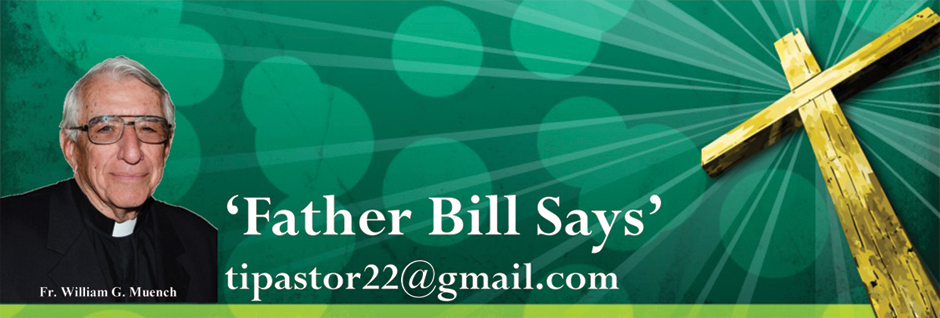February 5, 2025 By Father William Muench Today, I would like to write something about a friend of mine, St. Thomas Aquinas. I thought of St. Thomas today. I was assigned to celebrate the morning Mass, and I discovered that this was the Feast of St. Thomas Aquinas. He became a friend of mine during my seminary days at St. Mary’s, Baltimore. My studies in seminary theology involved a great deal of study of the writings of St. Thomas Aquinas, especially his “Summa Theologica.” During those days, I spent plenty of time with St. Thomas. So, we became rather good friends. Now, St. Thomas lived and wrote in the 13th Century A.D. His writings are still studied now by seminarians and theologians. I still remember much of St. Thomas’ thought though I was in the seminary 69 years ago. I truly loved St. Thomas Aquinas. I remember that he was a close companion when I took the orals for my Sacred Theology Degree. He was a Dominican priest. There is no doubt that he was a gifted genius and a very holy man. He is always described as a very humble writer and teacher. He has brought God to the people of all times. His profound and important work is the “Summa Theologica,” an all-inclusive study of theology – the teachings of the Lord Jesus and of our Catholic Church. His writings reflect his deep love of God, which is very evident in all his writings. He was very dedicated to the Lord Jesus. St. Thomas had a special love for the Sacrament of the Holy Eucharist. St. Thomas directs us all to find Jesus in the Eucharist, leading all to a more dedicated Christian life. St. Thomas Aquinas’ love for the Holy Eucharist inspired him to write several Eucharistic hymns. These hymns continue to be sung often in liturgical services. St. Thomas wrote the familiar hymn, “Pange Lingua Glorioso,” a hymn that is sung each year during the Holy Thursday procession. The last two verses of the “Pange” are sung each time we celebrate benediction. There, it is called “Tantum Ergo.” St. Thomas also wrote the “Adoro Te Devote,” a deeply personal and devotional hymn to Christ present in the Blessed Eucharist. St. Thomas was born and raised in Sicily. He later studied under St. Albert the Great at the University of Paris. He was ordained a priest in 1250 and returned to Parish to teach at the university. Among his early writings St. Thomas wrote in defense of the mendicant orders. He wrote commentaries on Aristotle. He wrote a great deal on Biblical works. All these lead to his major work, “The Summa Theologica.” One more St. Thomas Aquinas story that demonstrates his holiness: It is said that in December 1273, that he experienced a divine revelation which so enraptured him that he abandoned the Summa. He proclaimed that he felt all of his writings were so much straw in the wind compared to the reality of the divine glory. St. Thomas died shortly after this spiritual experience. Some have written that he was broken by overwork. St. Thomas’ works have been seminal to the thinking of the Church ever since. His work systematized the Church’s great thoughts and teaching and his combining Greek wisdom and the truths of Christianity. St. Thomas Aquinas was canonized by Pope John XXII in 1328. I still consider him a companion and patron and protector whenever I write. |
||||


